The New York Times and The New Yorker are desperately trying to revive the story of the so-called “Genocide Fax” of January 11, 1994. It seems to indicate that they can’t find anything better to defend their official story of the Rwandan tragedy. With the author’s permission, Baraka Books is offering to the public the excerpt from Rwanda and the New Scramble for Africa concerning Philip Gourevitch’s story of that fax. The excerpt is from chapter 5 entitled “A Coup by Any Other Name …”
A Coup by Any Other Name…
… all on the basis of a single childish accusation, that idiotic bordereau…
since almost all the so-called secrets that had supposedly
been turned over to the enemy were of no value.
Émile Zola, J’accuse
One fine spring day in 1998 the ring of a fax interrupted Philip Gourevitch, staff writer with The New Yorker. Some unknown source surprisingly sent him a copy of a document that reporters and investigators had been trying to track down for years. It was the answer from the New York office of the United Nations Peace Keeping Operations to the fax that General Romeo Dallaire sent on January 11, 1994, which supposedly warned UN authorities of an imminent genocide in Rwanda.
 In his much-cited article in The New Yorker entitled “The Genocide Fax,” and then again in his book, [1] Gourevitch attempted to show that the UN leaders knew there would be a genocide because Dallaire had explicitly warned them after obtaining trustworthy information from a “big fish” by the name of Jean-Pierre. He also tried to prove that the same United Nations leaders chose to do nothing other than inform President Habyarimana and foreign embassies in Kigali. In a nutshell, a “very very important government politician,” to use Dallaire’s word, had put Dallaire in contact with a senior cadre of the President’s MRND party and its militia. Troubled by a guilty conscience, Jean-Pierre apparently decided to spill the beans.
In his much-cited article in The New Yorker entitled “The Genocide Fax,” and then again in his book, [1] Gourevitch attempted to show that the UN leaders knew there would be a genocide because Dallaire had explicitly warned them after obtaining trustworthy information from a “big fish” by the name of Jean-Pierre. He also tried to prove that the same United Nations leaders chose to do nothing other than inform President Habyarimana and foreign embassies in Kigali. In a nutshell, a “very very important government politician,” to use Dallaire’s word, had put Dallaire in contact with a senior cadre of the President’s MRND party and its militia. Troubled by a guilty conscience, Jean-Pierre apparently decided to spill the beans.
According to Gourevitch’s story, Rwandan leaders were planning to provoke a civil war by assassinating selected political leaders and Belgian troops. The informer, Jean-Pierre, apparently suspected that the same leaders were drawing up lists of Tutsis in order to exterminate them. He also said that with his small staff he could kill up to two thousand Tutsis in twenty minutes. Weapons were hidden throughout Kigali and could even be found at the MRND headquarters. In return for this information, the mysterious Jean-Pierre only wanted to obtain UN protection for him and his family.
This was the golden nugget, the first documentary evidence to be found from the period before April 1994. Finally a piece of paper proved the existence of a comprehensive plan to exterminate Rwandan Tutsis, just as the Nazi’s had left a paper trail of documentary evidence proving their intention to exterminate the Jews. What’s more, UN Secretary General Boutros Boutros-Ghali and his successor Kofi Annan, who then headed peacekeeping operations, were fully informed of the imminent genocide. Instead of taking immediate action, as the fax most obviously would have required, both Boutros-Ghali and Kofi Annan preferred typical UN bureaucratic inaction. They did not even inform the Security Council. As a result of their turpitude, the international community was caught unprepared for the apocalypse a few months later.
Thanks to investigations by the intrepid Philip Gourevitch the truth was now out and therefore we should all apologize profusely for our inaction during the genocide that was so clearly foretold. Fortunately, President Clinton and his Secretary of State Madeleine Albright apologized for us when they gracefully visited Central Africa in 1998.
That’s how “right and proper tale” goes, but what really happened?
“Neither General Dallaire nor I ever met that famous Jean-Pierre,” said the fax’s very very important government politician in an interview in Brussels. “I told Dallaire about this story I had heard and about the informer. Dallaire sent one of his assistants to meet him and two days later he came and told me that they had found a few guns. The UN was not about to provide protection for him.” That doubly important government politician was Faustin Twagiramungu, leader of the opposition MDR party and prime minister designate.
For Mr. Twagiramungu the tale of Jean-Pierre reveals a terrible contempt for Africa and Africans. “I provided information to the UN Mission in Rwanda, but I never spoke about massacres or extermination of Tutsis. A fax is then sent to New York with reference to the extermination of Tutsis. Nobody talked to me about that. Except for a few words from Dallaire, I heard nothing more about this business for several years.” [2] On February 25, 1998 in Arusha General Dallaire confirmed under oath that he had never met Jean-Pierre.
Jean-Pierre’s real name was Abubakar Turatsinze. He had been hired by the MRND as a chauffeur mainly because he was Muslim and would not likely drink and drive. Since Jean-Pierre was a good talker and had some success with the youth wing, the MRND gave him certain responsibilities in that area. In November 1993, however, suspecting that “Jean-Pierre” was peddling information to others, the national secretary of the MRND, Joseph Nzirorera, fired him. He was reengaged by another leader to accomplish small tasks. Soon after Jean-Pierre indirectly informed Faustin Twagiramungu, chairman of the main party opposed to the MRND, that the leaders of the MRND were targeting him for assassination. His authority for such a statement was that he worked for the MRND, yet he had been fired two months earlier and was perceived to be unreliable. Faustin Twagiramungu suspected a trap was being set to provoke confrontation between his own party and President Habyarimana’s MRND. He was also aware of the danger of circulating unfounded accusations. This prompted him to inform the UN Mission, which was responsible for investigating these types of reports.
Romeo Dallaire sent Colonel Luc Marchal, the Belgian commander of UNAMIR troops in the Kigali area, to meet Jean-Pierre/Abubakar Turatsinze on January 10 in the evening along with Captain Amadou Deme. They also visited the MRND offices and saw a number of light weapons, which was perfectly normal for security purposes. Luc Marchal believed Jean-Pierre’s story and relayed the information to Dallaire who sent the famous fax without counterchecking or investigating the story any further.
The promoters of the “right and proper tale” unfailingly forget to mention that the main reason Dallaire sent an urgent fax to New York was to get advice from his superiors. This was fully understandable. Dallaire had no experience in this area, he had reservations about the informer’s credibility and he suspected a trap. Here are the sections of the fax that have been studiously omitted from the “right and proper tale.”
THIS HQ DOES NOT HAVE PREVIOUS UNITED NATIONS EXPERIENCE IN SUCH MATTERS AND URGENTLY REQUESTS GUIDANCE.
FORCE COMMANDER [Dallaire] DOES HAVE CERTAIN RESERVATIONS ON THE SUDDENNESS OF THE CHANGE OF HEART OF THE INFORMANT TO COME CLEAN WITH THE INFORMATION.
POSSIBILITY OF A TRAP NOT FULLY EXCLUDED, AS THIS MAY BE A SET-UP AGAINST THIS VERY VERY IMPORTANT POLITICAL PERSON.
It was normal for Dallaire and Marchal to request guidance from their superiors. Marchal had been in Rwanda since the end of November—one month. Dallaire had arrived at the end of October—two months. How could either determine the veracity of detailed information about the political parties in a country they knew little about and in which everything went on in a language they did not understand?
The following day Dallaire’s superiors in New York advised him in a fax to inform President Habyarimana and to warn him of the risk that armed militias represented for the implementation of the Arusha Peace Accord. They also suggested that he communicate the same information to the main foreign embassies in Kigali. Nothing that Jean-Pierre predicted came about. If he had spoken about plans to assassinate President Habyarimana, perhaps his predictions would have warranted greater attention. But no mention is made of the upcoming assassination. The advice of Dallaire’s superiors therefore seems simple, reasonable, and wise.
The “very very important” Rwanda politician, Faustin Twagiramungu, thinks that the Jean-Pierre story is totally false and that there was absolutely no planning of a genocide. What’s more, he told Philip Gourevitch as much before The New Yorker article on “The Genocide Fax” appeared and before Gourevitch published his book on the Rwandan tragedy. The New Yorker staff writer did not bother quoting him even though he was at the heart of the whole story. Was Jean-Pierre just trying to obtain favours in return for information? Did he want a visa for the United States or Canada? Whatever the case may be, his story resembles so many others in every country in the world. It is the story of the clerk, driver or telephone operator who works for important and powerful people and glorifies his role and position to win influence, notoriety and, sometimes, financial gain. The possibility that he was an RPF “plant” cannot be eliminated.
***
The story of Jean-Pierre is at best dubious, but what can be said about the content of Dallaire’s fax and the questions it raises? What about the alleged preparations to exterminate Tutsis? What about the alleged armed militias and political assassinations? What about President Habyarimana’s loss of control of elements of his own party? And what about the lists? The whole picture would appear very sinister.
Faustin Twagiramungu never heard of any intentions to exterminate the Tutsis as Jean-Pierre described in detail to Colonel Luc Marchal. [3] He also testified to this effect under oath at the ICTR. In other testimony before the ICTR, Belgian Colonel Frank Claeyes, who also met Jean-Pierre, stated that he had never seen any lists and that after January 11 Abubakar Turatsinze/Jean-Pierre refused to produce the lists he had talked about even though Claeyes asked specifically for them or for samples every time they met. Other prosecution witnesses testified under oath that Turatsinze was active in the flourishing black market arms trade in Kigali.
Turatsinze undoubtedly knew that a Rwandan politician like Prime Minister designate Faustin Twagiramungu was familiar with the RPF and its tactics, just as he was with the other Rwandan political formations. He could not be easily fooled into believing such a story. On the other hand, Luc Marchal and Romeo Dallaire who had just arrived and new virtually nothing about Rwanda were much more gullible. The Belgian peacekeeper later wrote about how he had been “taken in by the RPF’s formidable propaganda” ever since the Arusha negotiations. [4]
Pro-RPF publications abounded with accusations similar to those made by Jean-Pierre. The Rwandan Patriotic Front’s goal was to prepare Western public opinion to accept and support the resumption of war since it knew very well that it could never win power in democratic elections. During the period prior to Jean-Pierre’s meeting with Luc Marchal, pro-RPF publications such as Isibo [5] ran articles closely resembling descriptions made by Jean-Pierre. Nearly twenty years after the events and despite long and detailed trials of alleged génocidaires in Arusha and elsewhere, absolutely no evidence of the planning or intention of exterminating Rwandan Tutsis has been found or presented. Philip Gourevitch, who has been one of the RPF’s main cheerleaders, explicitly recognized this when he insisted that his “genocide fax” from Dallaire was the most important documentary evidence of an extermination plan.
(…)
***
How and why did Gourevitch’s so-called genocide fax mutate into one of the elements of the official narrative? [6] The fax Dallaire sent to his superiors in New York remained more or less confidential until November 1995 when it was mentioned in The Observer in London. A copy of it then appeared in a Belgian publication and several questions about it were raised during the inquiry conducted by the Belgian Senate. Although nobody had a copy of the reply from UN headquarters in New York, the contents of the reply were known.
For former Secretary General Boutros-Ghali, “that story of the fax is greatly exaggerated. There was not only one fax. Every day the UN would receive faxes saying ‘We heard there’s a plot afoot…’” He added that if there was a plot afoot, Security Council member countries were much better informed than the UN Secretary General because, unlike the UN, they have intelligence gathering services. “What’s more, they refuse to share their information!” [7]
Late in 1997 and early in 1998, the United States was being severely criticized for its role in the Rwandan tragedy and in the Congo. Hearings in the French National Assembly and the Belgian Senate led to irritating headlines and pointed attacks on the Clinton Administration. In spring 1998, in Washington, the House Committee on International Relations wanted to question the Administration about Washington’s inaction during the Rwandan tragedy in 1994. Neither the State Department nor the Defense Department deigned to appear at the public hearings held by the House Committee. Their refusal angered members of Congress.
Astoundingly, Philip Gourevitch’s fax machine happened to ring at that very moment and out came the much sought-after UN reply to General Romeo Dallaire. Gourevitch published his “scoop” in The New Yorker coincidentally during the very week that hearings were being held in Washington about the United States’ role in the Great Lakes region of Africa. Here’s how Gourevitch explained it all. He first quoted UN spokesman Fred Eckhard to the effect that the UN was getting “a bum rap on this,” then he added, “Somebody with access to UN files disagreed with Eckhard, and one day my fax machine rang and a copy of the missing …” [8]
People have not asked Mr. Gourevitch how and why he happened to receive the missing reply, and he has not volunteered to tell us. The fax most likely came from Jamie Rubin, Madeleine Albright’s senior press attaché and right-hand man, who at that time was Gourevitch’s brother-in-law.
Jamie Rubin is the man who the Clinton Administration charged in March 1995 to devise a plan to prevent Boutros Boutros-Ghali from obtaining a second term as Secretary General of the United Nations. Rubin had contacts in all the major media in Washington and New York and never hesitated to use them to leak information to attack Boutros-Ghali within the UN. His overriding strategy however was to protect and promote Madeleine Albright. [9] Moreover, Jamie Rubin confirmed his tight relationship with Philip Gourevitch to New York Times reporter and author Howard French. In a 1997 press briefing while he was accompanying Madeleine Albright in Rwanda and the Democratic Republic of the Congo, Jamie Rubin said to French: “Actually a lot of my take comes from an even better source (than US intelligence), and it comes directly. Philip Gourevitch is my sister’s boyfriend.” [10]
The State Department and Secretary of State Madeleine Albright were in hot water over Rwanda. The best way to divert the attacks was to pass the buck on to the United Nations and to Boutros-Ghali. At the same time, they could also let Kofi Annan know that he too was on a short leash. Annan after all was responsible for UN peacekeeping operations at the time. The spin given to the fax story in The New Yorker could be summed up as follows: We in Washington are not guilty of having supported a murderous invading army that has spread death and destruction throughout central Africa. It’s those incompetent UN bureaucrats and especially that secretary general who did not take the obvious necessary measures to stop those horrible génocidaires from carrying out their evil plans. They did nothing even though they were sitting on unquestionable documentary evidence of a planned genocide. They did not even inform the international community.
The strategy used by Washington to hide its own evildoing is tried and proven. In 2002, when it was preparing war on Iraq, Washington launched a similar message: “We don’t want to destroy Iraq, take over the country, and put in an American puppet. It’s the United Nations resolutions that demanded we do so.”
Washington’s strategy has unfortunately been quite successful even though it does not stand up to analysis. The power of the United Nations is very limited. The CIA alone spends more in ten days than the UN spends in a year: 1.2 billion US dollars. [11] Ramsey Clark points out that, “since the end of the Cold War the US is so dominant in the UN that it is almost a tool, a small tool, and it has a lot bigger ones like its bombs and its aircraft to get its way around the world.”
***
In that January 11 fax Romeo Dallaire reported that according to Jean-Pierre President Habyarimana did “not have full control over all elements of his old party/faction.” He could, and perhaps should, have written that the president no longer had any control over the country.
Decision-making power for Rwanda was now everywhere but in the hands of Rwandans in Kigali. Between October 1, 1990 and April 6, 1994 foreign powers led by the United States had effectively disempowered Rwandans who had worked for thirty-five years to build a state apparatus and a society that worked relatively well and met the needs and aspirations of the people of Rwanda. Yet the so-called donor institutions had decided that the economic model had to be changed. A strong state with an interventionist bent was to become a tiny administrative unit, even if it meant social upheaval and loss of power for the Hutu majority. Next came the political model imposed by Western powers even though the country had been invaded under their noses and with their support and was still occupied by a hostile foreign army. The same powers then forced the Rwandan government to sit down and negotiate the transfer of power to an invading army that, at best, represented a small minority of the Rwandan population.
Time passed and the occupying army continued to take new land. The civilian population was chased out of their homes. The country, its president and government, and all Rwandans who refused to accept being ruled by the invading army were vilified throughout the world. While the occupying army killed, deported, and terrorized the population, right-thinking Europeans and North Americans became international mouthpieces for the attacks while regularly adding their own slander. Their words became daggers aimed at the jugular of Rwandan society. Friendly countries turned their backs after thirty years of co-operation and became cozy with the occupying army, soon to be characterized as a beacon of hope for Africa in the new millennium.
By April 1994, on the eve of President Habyarimana’s assassination, Rwanda was in total disarray. The country’s leaders had no power to decide on their future. The new political parties were in crisis, jockeying for position and influence. The economy was shattered. The war raged on and more than a million people were displaced. Armed groups were everywhere, each establishing its own laws, while the United Nations peacekeeping mission responsible for disarming them could not, or would not, carry out its mandate.
The amplification of the importance of the dubious story of Jean-Pierre and Dallaire’s fax must be contrasted with the trivialization of the crime that triggered the massacres in Rwanda in April 1994. [12] Whereas none of the details or causal links in the former story have been established despite years of court hearings, we know that a sophisticated and well-armed organization planned, organized, and executed on April 6, 1994 the assassination of two African heads of State which had terrible direct consequences. Yet the powers that be would rather see that crime remain a footnote in history.
[1] Gourevitch, Philip, We Wish to Inform you that Tomorrow we Will Be Killed with our Families. Stories from Rwanda, New York, Farrar, Straus and Giroux, 1998.
[2] Interview with Faustin Twagiramungu, November 22, 2002.
[3] Colonel Luc Marchal, Rwanda : la descente aux enfers, Témoignage d’un peacekeeper, décembre 1993 – avril 1994, Paris Éditions Labor, 2001, pages 165 à 176.
[4] Letter from Luc Marchal to Alain de Brouwer written in July 1998 quoted by de Brouwer in a document about the organization of International Christian Democrats and the war in Rwanda, October 2002.
[5] James K. Gasana, op. cit. p. 238.
[6] To appreciate the power of a false story, in 2000 a group of “experts” published a book entitled The Path of a Genocide, still used in schools and universities, in which the January 11, 1994 cable is printed in its entirety right after the editors’ preface as though it were incontestable proof of the case about to be made.
[7] Interview with Boutros Boutros-Ghali, November 9, 2004.
[8] The Genocide Fax, The New Yorker, May 11, 1998, p. ??.
[9] Michael Dobbs, Madeleine Albright. A Twentieth Century Odyssey, Henry Holt & Company, 1999, pages 364 à 365.
[10] Howard French, A Continent for the Taking, Knopf, 2004 p. 243.
[11] Ibid. p 365. Former UN Secretary General Boutros Boutros-Ghali complained that the CIA spent as much every day as the UN in a whole year. Madeleine Albright’s biographer corrected him by pointing out that it was every ten days and not every day.
[12] In a sad attempt to mimic the paper trail left by the Nazis regarding their genocidal project some have conferred upon the dubious “genocide fax” and “Jean-Pierre” a sacred role in their narrative. Kofi Annan, in his ingratiating effort to maintain credibility among Western powers, quotes the in full in his memoirs Interventions: A Life in War and Peace (Penguin 2012), as if his feigned candour could make the story true
Buy Robin Philpot’s Rwanda and the New Scramble for Africa From Tragedy to Useful Imperial Fiction.
 How did Franz Boas become the central founder of anthropology and a driving force promoting science in public life in North America? To answer this question, linguistic and cultural barriers must be overcome to grasp the importance of Boas’s personal background and academic achievements as a German Jew. Müller-Wille asserts that the key is in his publications in German on Inuit and the Arctic as related to environmental, geographical, and ethnological questions. These writings have remained largely unknown and neglected in the English-speaking world, yet they represent his emerging scientific interpretations of Inuit culture and the Arctic. They also provide insight into the crucial period of Inuit history 130 years ago at a time of European and North American colonial expansion into their homeland.
How did Franz Boas become the central founder of anthropology and a driving force promoting science in public life in North America? To answer this question, linguistic and cultural barriers must be overcome to grasp the importance of Boas’s personal background and academic achievements as a German Jew. Müller-Wille asserts that the key is in his publications in German on Inuit and the Arctic as related to environmental, geographical, and ethnological questions. These writings have remained largely unknown and neglected in the English-speaking world, yet they represent his emerging scientific interpretations of Inuit culture and the Arctic. They also provide insight into the crucial period of Inuit history 130 years ago at a time of European and North American colonial expansion into their homeland.


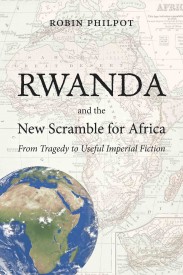 In the buildup toward the final conquest and takeover, the low-level RPF war was also greatly helped by the West’s putting the Rwanda government under siege for its alleged human rights violations. The government did arrest some 8,000 individuals suspected of being RPF agents or active supporters in October 1990, all of them released within six months. This caused a frenzy in the Western political establishment, media and among human rights groups. Although the RPF (and Uganda) had invaded Rwanda, produced hundreds of thousands of refugees, and posed an enormous security threat to Rwanda, this was all overlooked by Western propagandists. Their sole focus was on the Rwanda government’s alleged excesses. Philpot notes that the many thousands of Japanese imprisoned by the United States and Canada during World War II involved a trivial security threat in comparison with that posed by the RPF against Rwanda. But the United States and its close allies supported the RPF, hence the huge bias throughout the West.
In the buildup toward the final conquest and takeover, the low-level RPF war was also greatly helped by the West’s putting the Rwanda government under siege for its alleged human rights violations. The government did arrest some 8,000 individuals suspected of being RPF agents or active supporters in October 1990, all of them released within six months. This caused a frenzy in the Western political establishment, media and among human rights groups. Although the RPF (and Uganda) had invaded Rwanda, produced hundreds of thousands of refugees, and posed an enormous security threat to Rwanda, this was all overlooked by Western propagandists. Their sole focus was on the Rwanda government’s alleged excesses. Philpot notes that the many thousands of Japanese imprisoned by the United States and Canada during World War II involved a trivial security threat in comparison with that posed by the RPF against Rwanda. But the United States and its close allies supported the RPF, hence the huge bias throughout the West.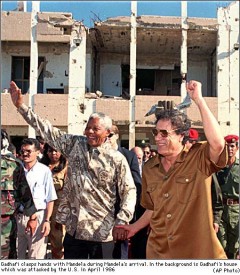 These words were spoken by then South African President Nelson Mandela as he stood next to visiting U.S. President Bill Clinton in late March 1998. Clinton had criticized Mandela’s meeting with Gaddafi. As Bill Clinton had also broached the subject of a UN-led peacekeeping force for Africa, Mandela responded directly and sharply: “I certainly would never put my troops under somebody who does not belong to Africa” (Ross, 1998/3/27).3
These words were spoken by then South African President Nelson Mandela as he stood next to visiting U.S. President Bill Clinton in late March 1998. Clinton had criticized Mandela’s meeting with Gaddafi. As Bill Clinton had also broached the subject of a UN-led peacekeeping force for Africa, Mandela responded directly and sharply: “I certainly would never put my troops under somebody who does not belong to Africa” (Ross, 1998/3/27).3
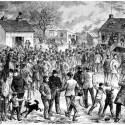






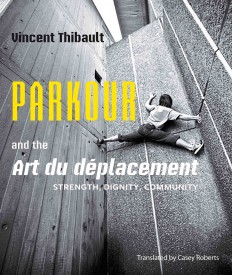


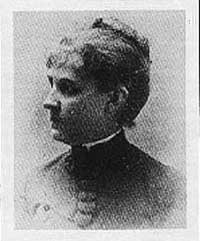
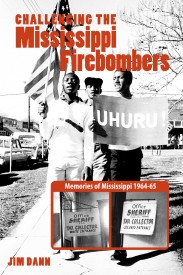
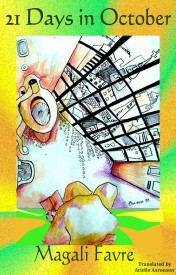

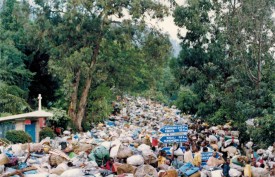
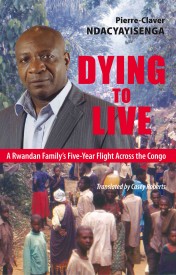 Buy the book
Buy the book 

Facebook